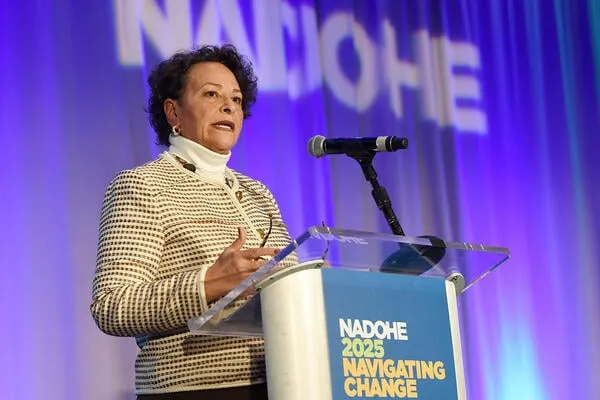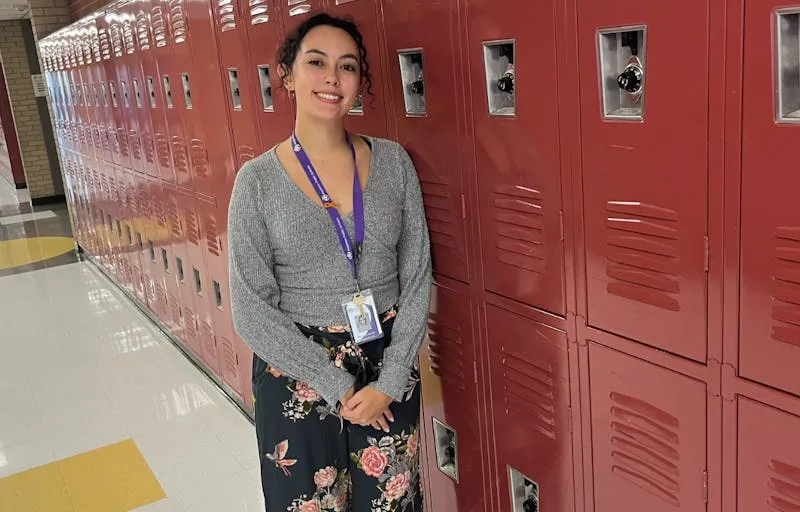The past few years have brought a seemingly endless series of existential challenges for colleges and their leaders. Although many of the most recent challenges have been initiated by decision-makers in the nation’s capital, a sense of crisis on college campuses is nothing new. For any number of social, political and economic reasons, leadership in the world of higher education has been hard for some time, and it will probably keep getting harder.
Navigating external crises is especially challenging for midlevel campus leaders, such as department chairs and center directors. Too few of these individuals receive effective leadership training or support. And in moments of crisis, higher education’s collective failure to invest in developing strong leaders is on full display. Beyond the lack of role preparation, the very ambiguity at the heart of midlevel leadership—sandwiched between senior leaders and front-line faculty and students—makes it an inherently tough place to be.
On so many college campuses, department chair service carries limited power, authority, time and resources. As we prepare to begin a new academic year, chairs and directors may already feel exhausted or overwhelmed. In the paragraphs that follow, we offer a few general principles that may help department chairs figure out how to use their often overlooked and undercelebrated positions to support the collective well-being of their faculty, staff and students in what will most certainly be a challenging year ahead.
Accept what you cannot do (legally, morally, procedurally). Serving as a director or chair makes you a campus leader, whether or not you tend to describe yourself in those terms. And as a leader, you bear responsibility for acting in accordance with institutional policies and also for exercising good judgment in your actions and speech.
Chairs should not offer blanket assurances of safety to individuals or guarantees of legal counsel, for example. Instead, the better move might be to connect faculty and staff with identified resources and to let the experts employ their expertise. In moments of budget austerity, midlevel leaders should exercise caution in pledging financial support or informal guarantees of continued employment.
Chairs are empowered to use their full rights as private citizens—to protest, author op-eds and contact their elected representatives—but they should take care not to blur the lines between their personal activism and their official duties and position. You chair a department that includes diverse individuals who likely think and vote differently from one another. And right now, all of them need your full support for both routine and more substantive university matters. Anticipate that faculty, staff and students may look to you to set the ground rules so that all feel welcome, valued and safe in a polarized and scary world.
Exercise creative problem-solving within your domain. In a highly charged moment, chairs should use all the tools in their arsenal, strategically employing action and inaction.
Act by supporting small moments of connection, such as bringing in some baked goods or inviting a colleague who seems particularly overwhelmed to join you on a walk and talk across campus. If a faculty member in your department has lost the support of a federal grant, keep in mind that their entire research program may be in crisis. And if such a colleague is approaching a review for tenure or promotion, you may want to initiate a timely conversation about recalibrating expectations around scholarly productivity.
As for inaction, a crisis is an opportune moment to do no more than is absolutely necessary. Off-campus turmoil demands energy and attention. Do your best to help the department separate things that must be done now from the things that can wait. This may not be the time to request funds for an external speaker. Delay scheduling a faculty retreat to overhaul the long-overdue revision of the capstone class. Use the opening faculty meeting of the year to set some scaled-back, modest goals and enlist your colleagues in a pledge to keep the shared to-do list lean. (We suspect that’ll be an easy sell.)
Prioritize stability management. Ashley Goodall has argued that change, even necessary change, tends to disrupt our ability to find belonging, autonomy and meaning in our professional lives. Goodall offers the term “stability management” to describe what leaders can do for their colleagues on a daily basis, especially when everything is in flux.
Stability management begins by recognizing what works and needs to remain constant, focusing above all on preserving those things. Many faculty members may find comfort in the ordinary work of constructing class schedules, ordering textbooks, applying for travel funds, conducting faculty searches and the like. For some of your colleagues, business as usual may convey the implicit assurance that university life marches ever forward. This doesn’t mean that you should ignore or downplay the severity of a crisis; it just means that you can try to keep it in perspective.
Rituals and relationships also provide stability. If your department has a tradition of festive gatherings to mark the beginning of the academic year, now is the time to approach such gatherings with all the joy you can muster. And if your department is lacking in joyful traditions, well, that might be an opportunity for meaningful and much-needed change.
Defer to campus experts. During the pandemic, campuses mobilized their public health resources in highly visible ways, such as appointing campus physicians and researchers to policymaking task forces. Recent executive orders and policy mandates from the federal government have forced colleges to draw on a new set of experts, including international support personnel, grant managers, lawyers and financial aid counselors.
Rather than chairing high-profile committees, many of these trained professionals may work with impacted individuals in their specific, and often highly technical, unique situations. Many of these sensitive conversations are best conducted away from the limelight.
In other words, if you don’t see these efforts happening in public, extend the charitable assumption that campus resources are being mobilized to support those in need in the ways that make the most sense.
Embrace—don’t fight—the messy in-betweenness of being a department chair. The true art of midlevel leadership hinges on accepting its inherent dualities, limitations and freedoms. Department chairs may not be able to issue broad decrees, but they wield considerable influence over climate and tone. Not all problems are theirs to solve, but they can always offer sympathy and empathy. Instead of issuing top-down edicts, they can provide time and space for others to respectfully think together about hard topics.
In fraught moments, higher ed needs midlevel leaders to lean into their in-betweenness—to serve as translators, mediators and conduits between what on some campuses are warring factions. Send messages up the chain by highlighting the concerns of the most vulnerable members of the department, in case these individuals aren’t already receiving help. Make a point to show up at campus town halls and carefully read emails from central administration so you can keep your faculty informed. When you can, de-escalate hostile exchanges, quash baseless rumors and ensure no one feels overlooked or left out.
Commit to the beauty of your discipline. One of the hardest parts of leading in a crisis is not just navigating external pressures, but withstanding the slow erosion of your own spirit, which can quietly wear down even the most resilient leader. You can’t show up as the best version of your chair self to serve others if you have fallen into despair.
The recent attacks on colleges and universities have cut many of us to the core. There is no point in pretending that most of the work that happens in the academy will solve climate change, save American democracy or right centuries of injustice. Whatever benefits accrue to the world out there as a result of your teaching and scholarship will probably be indirect and difficult to measure.
Nonetheless, an academic leader can gain strength by reflecting on the ways in which their chosen discipline contributes, however indirectly, to the common good. The grunt work you do as department chair also makes it possible for students and faculty to deepen, enrich and expand their understanding of the world. Your work makes it possible for them to come ever closer to fulfilling their dreams.
Their work has meaning and value because, among other things, it embodies curiosity and an openness to new ideas. Your work may sometimes feel like an exercise in keeping the trains running on time, but you might remind yourself that, as long as the academy stays true to its core principles, the trains are heading in a worthwhile direction.
As a new academic year approaches, midlevel leaders are uniquely positioned to be a source of information, prudence, levity, focus and reassurance for the faculty, staff and students in their immediate spheres of influence. There’s plenty that we cannot begin to predict about the year to come, but we are confident that this is a year when students, faculty and staff will look to their most proximate leaders for guidance on how to keep moving forward.


